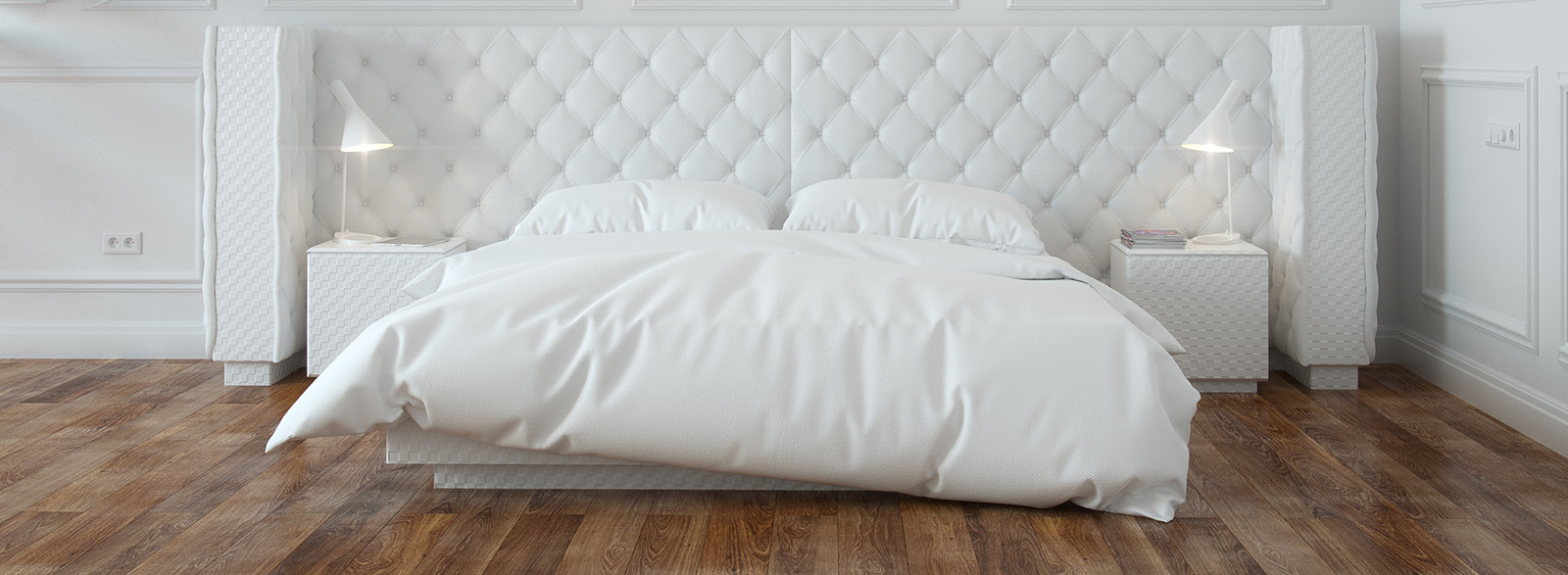When it comes to choosing the best mattress for your specific needs, one should get very personal about it. After all, a good night’s sleep is crucial for your health! To the ‘How to choose a mattress?’-question there might seem to be a single simple answer – it just has to be comfortable. True as this may be, there’s more to consider here.
There’s not some magical mattress that would be equally comfortable for all and everyone. Every person is unique. We all and every one of us differ in physiology, body, routines, habits, needs and health, and so do our preferences when choosing our bed mattress. And what is ‘comfortable’, anyway? When this remains a highly subjective matter, the truth is that you should first decide what style of mattress would be best for you to wake up in the morning feeling refreshed and energized, ready to meet the challenges of the starting day.
Contemporary markets offer a wide variety of mattresses of an equally large range of sizes, structure, materials, etc. essential features.
There are however a few key factors to take into consideration when choosing the best mattress that would meet your specific needs:
WEIGHT
Body weight matters a great deal when choosing a comfortable bed mattress. The choice depends on how the mattress reacts to and supports this weight. What mattress to choose that would best match your body weight and make you feel comfortable – soft, medium, or hard?
It is the personal definition and understanding of these qualities that would really matter here. In any case however, mattress firmness is all about the feel of comfort, as in how it ‘hugs’, cools, and supports the body. And while research shows that mattresses of less motion, a.k.a. harder, seem to be associated with better sleep, this characteristic still remains a highly subjective matter.
The average level of preferred mattress firmness is statistically between 4-7 pp. out of a 10 points’ scale. Here are some general guidelines on what optimum level of firmness to choose, depending on your body weight.
Light weight (150 pounds or less)
Light bodies don’t sink too much into the mattress, so hard and dense top layer mattresses would not be a good choice. Instead, we recommend universal to soft/plush/plush soft foam mattresses with firmness levels in the 3-7 pp. range. Such a mattress will provide ultimate comfort to a light weight body, avoiding excessive sinkage or heat retention issues.
Light weight sleepers, who would prefer a somewhat harder mattress, should look for firmness levels of 8 to 9 pp. for the feel of ‘floating’ on the surface rather than being ‘hugged’ by the mattress.
Average weight (150-200 pounds)
Sleepers with such body weight are truly lucky. Most mattresses are designed and produced to fit precisely this average category. Therefore the choice is huge. Any universal comfort range, from medium, medium firm, to luxury firm, (5-7 pp.), would be a great fit for average weigh sleepers.
Heavier weight (200 pounds and more)
A heavier body puts more pressure on the mattress. So, a bit higher levels of firmness (8.5 to 9 pp) are strongly recommended for better contouring and body shaping effect. As for structure, the wisest choice in this case would be a mattress of luxury innerspring / coil-on-coil build/ pillow-top coil, with deep compression and additional edge support. Foam mattresses with 4” – 12” layer thickness will provide the desired feel of comfort.
Firmness should not be confused with support, even if these two features go hand-in-hand. Softer or harder, a good body weight matching mattress is one that provides a proper support to the body, ensuring a better position of the spine without creating pressure points. This is highly important for not feeling any discomfort while lying in your bed, just as much as for not waking up sore or in pain.
Should you share a bed, a comfortable mattress would be one providing the right level of firmness and support to two separate (and in most cases, very different!) bodies. The two sleepers shall most probably have different body weight, size and shape, as well as different sleeping positions and even different preferred levels of firmness. The choice of the right mattress then might be a bit tricky. In such cases, mattresses of layered foam structure could be the solution, since they provide comfort levels adjustable to each of the individual sleepers.
SLEEPING POSITION
Every person has a preferred sleeping position – back, side, stomach, or a bit of each. The sleeping position should determine what type of mattress to choose.
Side sleepers
People who prefer this sleeping position actually often keep turning in bed, passing from one body position to another. With this in mind, the best mattress for side sleepers would be one that can provide maximum comfort to the body in any of its positions.
Soft to medium levels of firmness (3-6 pp.) are highly recommended. A soft mattress with good support level can relieve the pressure points on the neck and the back, and will better adjust to the contour of the body in any position it takes.
To side sleepers, we would also recommend a hybrid mattress build. Such structure features a combination of latex, memory or polyurethane foams, with coils and/or other materials. Mattresses with such structure offer a great bounce, responsiveness and cooling effect, while ensuring excellent pressure relief and support.
Back sleepers
The two most essential features of a mattress for a back sleeper would be ultimate support and best possible choice of firmness level. The mattress should ensure effective responsiveness, as much as best spinal alignment, so as to avoid pressure points and eventually, painful back problems.
Ideal firmness levels would be 4-7 pp, which is medium to somewhat hard feel. Although most types of mattress structures will provide the needed comfort, back sleepers will most probably feel best resting on a mattress of memory foam for the excellent support, pressure relief and body contouring these provide. A more sophisticated option would be the adjustable mattresses, especially for sleepers with specific needs. Some of these are designed to even vibrate, heat, and/or massage the sleeper!
Stomach sleepers
Sleeping on your stomach could be one of the worst sleeping positions, yet it’s the preferred one for many people. In their case, the mattress should have properties that would compensate the negative effect of the position itself, still providing the desired comfort for a good night’s healthy sleep.
The key quality would be a steady support, for ensuring a flat position of the body on the surface of the mattress. As any mattress would sink a bit in the middle, a stomach sleeper might experience unhealthy curving of the spine, especially if the mattress is of a softer build. This can cause serious pain and discomfort. Mattresses of average firmness levels (4-7pp) would therefore be an ideal fit. Foam and layered structures are the top choice for a stomach sleeper’s mattress. These offer maximum comfort, even weight distribution, and balanced foam interaction.
HEALTH CONDITIONS
A sleeper with specific health issues needs a mattress of excellent quality that would not only provide comfort but will also relieve such issues. We’ll discuss 3 of the most popular health conditions that you need to take into account when choosing a mattress – back pain, neck pain, and arthritis.
Back pain
Chronic back pain is one of the hardest health issues to deal with. Unfortunately, millions of people suffer from it. To find the best mattress for back pain is their dream-to-come-true. Proper spine alignment and body contouring are essential in this case. Such properties are exhibited best by mattresses of medium to higher firmness levels and a structure of medium-firm plant-based viscoelastic memory foam, gel memory foam, or a hybrid design (pillowtop, memory foam, micro coils and latex).
Neck pain
Whatever type of a sleeper, we all have often woken up suffering from uncomfortable neck pain. This is a health issue not to neglect lightly, especially when it becomes chronic. The neck supports the head and is the transition to the spinal cord, so its proper position while sleeping is crucial. This is important when choosing a mattress that can help with neck pain. The choice will actually depend on the preferred sleeping position. In any case however, mattresses of average hardness and memory foam or hybrid structure will be the best solution to deal with neck pain issues.
Arthritis
This health issue is a serious medical case and requires special attention. There are different types of arthritis and they can affect the body in different, sometimes severe, ways. Finding a comfortable mattress for a sleeper suffering from arthritis is only one of the multiple remedies that can help in dealing with the issue. The problem is that arthritis makes it difficult for the person to find a comfortable lying position, so he/she keeps changing sleeping positions. A suitable mattress should have therefore properties allowing maximum comfort and proper support in each position the body may take.
Definitely, mattresses of average softness to harder levels are best for people suffering from arthritis. Yet, support properties are crucial. The best mattress in these cases would provide good flexible support to spine, neck and shoulders, as much as to the waist, hips, legs and knees. The ultimate choice would be an orthopedic mattress with a specially designed structure. The pocket spring orto-mattresses are specifically designed with a higher concentration of individually-contained springs to provide more flexible support. Mattresses of memory foam and latex are also excellent choices.
BUDGET
Most people would gladly agree with how important a good mattress is for the health. But they might also point out to the price-tag issue as a serious obstacle to acquiring a product that would satisfy most (if not all) sought-after properties and features.
A great mattress does not however necessarily mean an expensive one. Contemporary industry offers nowadays mattresses of exceptional qualities at very affordable prices. On the other hand, high price does not always equal to high quality, either. And third, online shopping has opened multiple options for finding the right item for the price you would be willing to pay. Follow these short mattress budget tips:
- Don’t go for a mattress for less than $500 (Queen size); you’ll be most probably get a product of low quality, low durability, and even higher toxicity.
- $1,000 is a good budget to start with; it will allow you to find an excellent mattress on the online market, that will meet most your requirements and specific needs.
- For more luxurious and higher end products, such as a King / California King mattress, you should consider increasing your budget to about $1,500 or a bit more.
- Remember – mattress money is a well-justified cost. A mattress will last 8 to 10 years at average, which means you’d have your comfy bed for some $0,30 a day! In other words, buying a good mattress is a good long-term investment for your better health. Better not skimp on it.








1 Comment
I always thought the most firm mattress is best for my back. Now I know better, thanks for sharing the info!